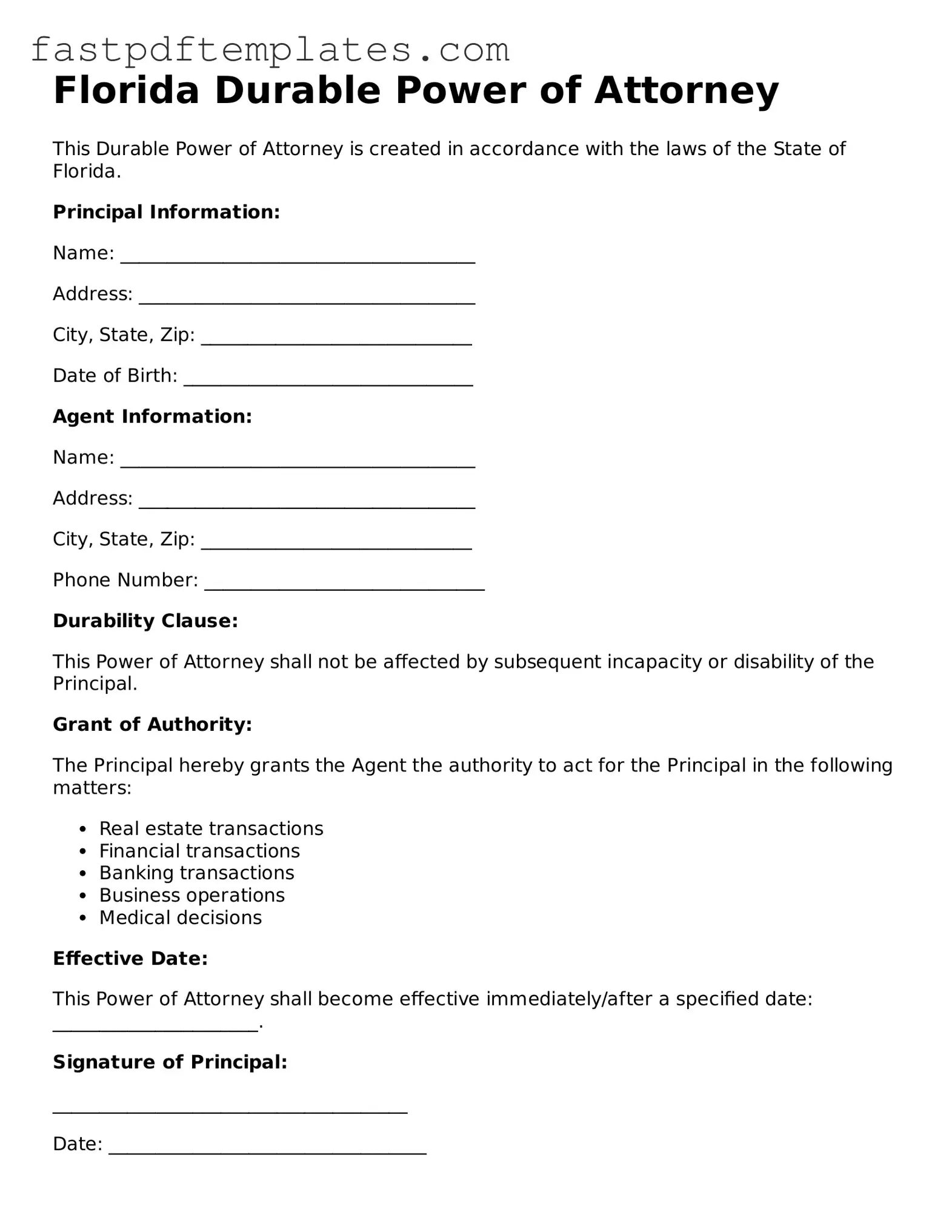Attorney-Approved Florida Durable Power of Attorney Document
A Florida Durable Power of Attorney form is a legal document that allows an individual, known as the principal, to designate another person, referred to as the agent, to make financial and legal decisions on their behalf. This form remains effective even if the principal becomes incapacitated, ensuring that their affairs are managed according to their wishes. Understanding the nuances of this document is crucial for anyone looking to secure their financial future and maintain control over their personal matters.
Access Document

Attorney-Approved Florida Durable Power of Attorney Document
Access Document
Your form still needs completion
Complete your Durable Power of Attorney online and download the final PDF.
Access Document
or
Click for PDF Form
